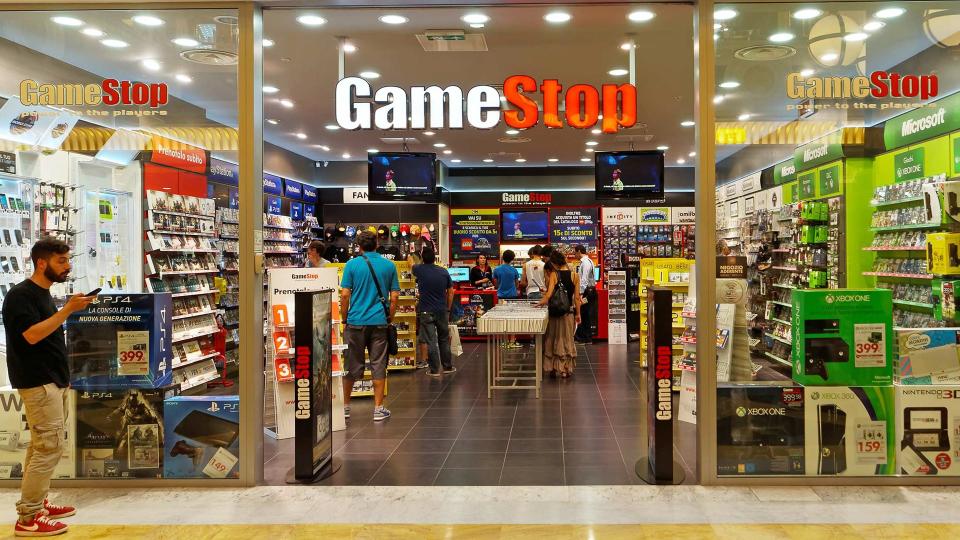Why You Shouldn’t Jump On Investing Bandwagons

Everyone wants to invest to make money, and investing truly is a great way to meet your long-term financial goals. However, the financial press — and your friends and neighbors — can make it seem as if everyone in the world is getting rich while you are plodding away, barely earning anything.
Small Business Boost: Don’t Miss Out on Nominating Your Favorite Small Business To Be Featured on GOBankingRates — Ends May 31
This type of “fear of missing out” can lead some investors to hop on every investing bandwagon in the hopes of making a quick buck. While this desire is very human, it can also be very destructive to your long-term financial health. Here’s a look at just a few reasons why you shouldn’t jump on investing bandwagons.
Last updated: May 5, 2021

You Won't Know When To Get Out
One of the biggest problems with jumping on a hot stock or other investing trend is that it’s hard to know when to get out. Hot stocks can often rise rapidly and offer dramatic profits, but they can just as easily turn on a dime and trade sharply lower. Imagine a stock that runs up 100% before you decide to pile in and buy it. When the stock sells off 10%, what will you do? What about if the decline reaches 20% or 30%? Many investors will be inclined to buy more of a stock they like if it sells off a little, but what if the stock continues to drop? Would a 50% decline be a huge buying opportunity or an indication that a stock will go down even more? It’s unlikely that the stock message boards or your friends who got you into a stock will have any answers, and that is one of the big risks of jumping on an investing bandwagon.
Costly Errors: 10 Most Expensive Investing Mistakes, According To Experts

You Won't Know When To Get In
The flip side of not knowing when to get out of a stock is not knowing when to get in. Usually, hot stocks or other popular investment trends only attract the general public after big gains have already been achieved. Take the example of GameStop. In early 2021, no one in the financial press was talking about GameStop, as the stock traded at about $18 per share. It was only when the stock began skyrocketing by as much as 400% in a single week that the financial press couldn’t stop talking about it. Once the news of the hot stock reached the masses, it exploded upwards to $483 in a matter of days — but if you decided that was the time to buy in, you made a huge mistake, as the stock now sits at just $160 per share. Trying to time a hot stock is usually a fool’s errand.
See Also: 9 Safe Investments With the Highest Returns

Short-Term Wins Come at a Big Cost
One of the rarely discussed flaws of trading in and out of hot stocks is the hidden cost you’ll have to pay, in the form of taxes. Any short-term profits you take on hot stocks can trigger a massive tax bill, as positions held for one year or less are taxed at ordinary income tax rates. This means that depending on your income, you might owe as much as 37% in federal taxes alone on your short-term gains. In high-tax states like California, your combined tax rate could reach about 50%. If you could instead hold your positions for longer than one year, you’d likely pay just 15% on those gains, and you might owe as little as 0% if your taxable income is less than $80,000.
More: 9 Outdated Myths About Investing

Investment Trends Change
One of the main reasons to avoid investing bandwagons is that investment trends change. Even if you’ve done the research and confirmed that there are sound investment principles behind the current hot trend, you shouldn’t expect it to last forever. And, as with any hot stock, it can be hard to know exactly when the winds of change will come. The closest thing to “a sure thing” on Wall Street is that the overall market will rise over the long run, a principle that no less than billionaire investor Warren Buffet subscribes to. But if you’re investing according to the latest hot trend, you can never be sure when the party will be over.
Read: Top Investing Tips for Those Who Don’t Follow the Market

You're Gambling, Not Investing
Let’s call a spade a spade — the bottom line is that if you are jumping on hot investing bandwagons, you are gambling with your money, not investing. And that is OK if you understand what you are doing. There’s no doubt that investing speculatively can be exciting, and sometimes it can result in tremendous profits. However, just like gambling in a casino, these types of risks can just as often result in losing a significant amount of your money. If you want to speculate with a small portion of your portfolio — say, 5% — most financial advisors will say that is fine. However, if you’re looking to reach your long-term investment goals, gambling with money you can’t lose — just as in a casino — is foolhardy.
Check Out: The Best Investing Advice From Jim Cramer and 9 Other Top Experts

It's Time-Consuming
Trying to keep on top of all of the latest investment trends can take up a lot more of your time than you might imagine. Hot investment trends tend to come and go rapidly, so if you aren’t paying constant attention, you might miss out when the trend turns. In fact, if you aren’t willing to keep up with how your investments are going, you’re better off just holding a long-term, “buy-and-hold” investment portfolio to begin with.
The Big Picture: 7 Best Long Term Investments To Consider

It's Stressful
Jumping in and out of hot stocks or investment trends can be immensely stressful. If you’re buying and selling stocks like GameStop that can literally move 100% in a single day, your stress level could skyrocket as much as the stock. Especially if you are playing with money you can’t afford to lose — like your retirement or college savings funds — trying to ride the hot trend can put you in a constant state of tension and stress. As stress can create long-term health problems, at some point you’ll have to ask yourself, is chasing the hot trend really worth it?
More: 9 Investing Bubbles That Will Make You Rethink Bitcoin

It's Unsustainable
Riding hot investment trends is ultimately unsustainable. If you’re just looking for short-term speculation, sure, it can be fun to hop on to the latest trend. However, if following the crowd is your long-term investment strategy, it’s simply unsustainable. While you might get lucky and succeed once, twice or even three times, over the long run, it’s inevitable that you will get whipsawed and time the trend incorrectly. And if you’re dealing with hot stocks, just one miss can be enough to wipe out your whole bankroll. Imagine you buy a stock and you take a 100% profit, then reinvest that in the next hot stock and earn 200%. You’re doing great, right? Well, if your third investment loses 90%, your entire bankroll is essentially gone. It’s hard to reach long-term financial goals with that type of volatility.
Against Type: 13 Investing Rules You Should Break During the Pandemic

It Can Be Expensive
It goes without saying that if you’re planning to day trade with a traditional brokerage firm, all of the commissions you pay from trading in and out of stocks can easily eat up all of your profits. But even at the zero-commission brokers, costs can add up. In addition to the taxes you’ll pay, as mentioned above, zero-commission brokers carry another risk — down service time. Brokers such as Robinhood may charge no commissions, but they’ve also had notable service outages, right when customers needed to buy or sell a stock the most. In fact, in 2020, Robinhood was actually under SEC and FINRA investigation for a day-long outage in the midst of the March market turmoil. If you need to get out of a stock that’s plunging and you can’t access your broker’s website, your losses can add up to a lot more than the commissions you are saving.
See: Reasons These 10 Hot Stocks Might Not Survive 2021

Slow and Steady Wins the Race
If you’re not yet convinced that “slow and steady wins the race” when it comes to investing, just take a look at the history of the S&P 500 index. Although the market can certainly be volatile at times, hanging on for the long haul has proved immensely profitable for patient investors. Not only is the long-term average return of the S&P 500 index about 10% per year, but there has also actually been no 20-year rolling period in history where the S&P 500 index has lost money. Considering the market has a reputation as being “too risky” for some investors, that’s an amazing statistic. If you told the average investor that there was an investment where they could earn about 10% per year while having no historical risk of losing money over any 20-year period, a lot more might get excited about putting more money into the stock market.
More From GOBankingRates
Money’s Most Influential: Where Do Americans Get Their Financial Advice?
‘Rich Dad Poor Dad’ Author Robert Kiyosaki: You Should Never Say ‘I Can’t Afford That’
Here’s How Much You Should Have in Your 401(k) Account, Based on Your Age
This article originally appeared on GOBankingRates.com: Why You Shouldn’t Jump On Investing Bandwagons

 Yahoo Movies
Yahoo Movies 
